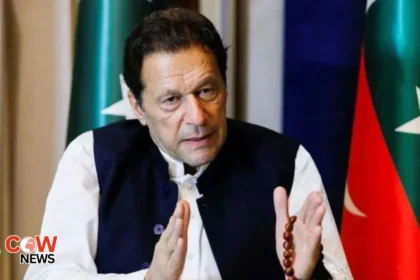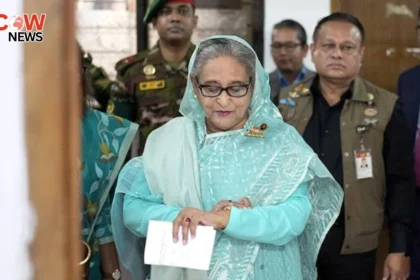RIYADH/ISLAMABAD ( The COW News Digital) In a landmark development, Pakistan and Saudi Arabia have signed a Strategic Mutual Defense Agreement (SMDA), pledging to treat any external aggression against one country as an attack on both, and to respond jointly to any such threat.
Prime Minister Shehbaz Sharif arrived in Riyadh on the invitation of Crown Prince and Prime Minister of Saudi Arabia Mohammed bin Salman. His plane was escorted by Saudi F-15 fighter jets upon entering Saudi airspace — a gesture symbolizing the importance of the visit. Upon landing at King Khalid International Airport, the prime minister received a warm welcome, complete with a 21-gun salute and an honor guard.
The high-level Pakistani delegation included Deputy PM and Foreign Minister Ishaq Dar, Chief of Army Staff Field Marshal Syed Asim Munir, Defence Minister Khawaja Asif, Finance Minister Muhammad Aurangzeb, and other senior officials.
The official talks were held at Al-Yamamah Palace in Riyadh, where both sides discussed bilateral relations, regional security challenges, and global developments. The joint communiqué issued after the meeting highlighted the decades-long strategic partnership between the two brotherly nations and reaffirmed their commitment to Islamic solidarity and regional peace.
The newly signed SMDA aims to enhance defense cooperation, joint military preparedness, intelligence-sharing, and security coordination between the two nations. Crucially, it stipulates that an attack on one country will be considered an attack on both, ensuring a collective response.
Under the agreement, Pakistan will work closely with Saudi Arabia to safeguard the sanctity of the Two Holy Mosques, a first-of-its-kind commitment that further deepens the security alliance between Islamabad and Riyadh.
Prime Minister Shehbaz Sharif expressed gratitude for the royal reception and emphasized that the agreement reflects a shared vision for peace, stability, and prosperity in the region. Defence Minister Khawaja Asif hailed the pact as “a milestone for regional security” and credited the diplomatic success to Pakistan’s strong military and political leadership.
Analysts believe the agreement will not only boost security cooperation but also strengthen economic and diplomatic ties between the two countries, enhancing their ability to address common threats and promote stability in the Muslim world.







